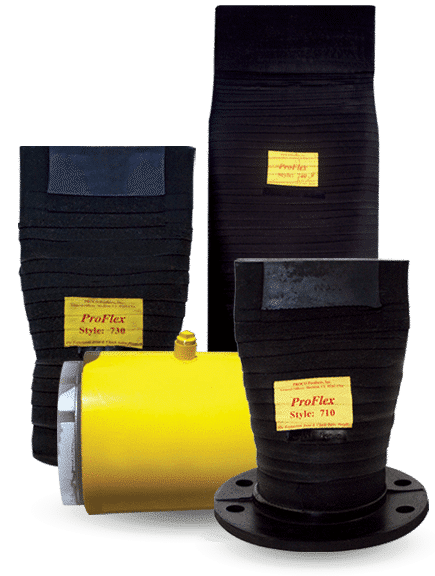Check Valves
What is a check valve?
Flow check valves in pipelines permit liquids and gases to flow one way in a single direction only and prevent the flow reversing. The correct flow pressure forces the check valve open whilst reverse flow causes the valve to close.
Flow check valves open at a designed minimum flow, or cracking pressure, for the valve to begin to operate. Check valves protect systems from pressure surges that may cause damage to pumps and pipework and help efficient operation. Check valve suppliers provide several types of valves, these include ball valves or metal flap check valves in which a disc pivots to prevent reverse flow. Proco Products is a check valve manufacturer specializing in fabricating rubber which has the advantage of not only being durable and effective, but also reduces the likelihood of common maintenance problems seen in metal valves.
Rubber duck bill check valves use a rubber diaphragm which remains closed until fluid or gas flow pressure is applied to open it. Unlike their metal swing or flap check valve counterparts, rubber check valves cannot rust, seize, or bind, typically increasing reliability and longevity. Similarly, rubber check valves do not suffer from mechanical wear, a factor which can negatively influence check valves manufactured from other materials.
Proco Products is a leading manufacturer of rubber check valves, these are fully passive devices requiring neither maintenance nor any source of outside power or manual assistance to operate. Proco Products is also a rubber check valves supplier offering new and replacement valves that are interchangeable with flap type check valves eliminating seizing, rusting or binding in unwanted positions. Rubber check valves are made to work with ultra-quiet operation, do not warp or freeze and are designed to prevent standing water and eliminate trapped solids.
Proco Products manufactures check valves, industry approved, for water and wastewater, pulp / paper and mining. We supply check valves for use in stormwater applications, sewage treatment plants, outfalls, tidal and pre-existing pipelines such as manholes and vaults.








